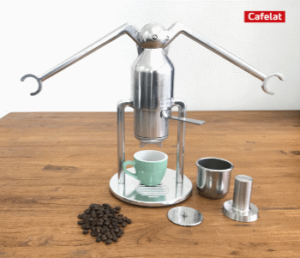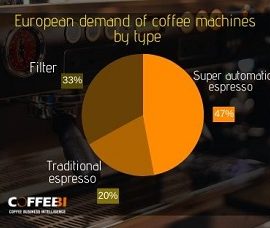Key Trends and Challenges in the Professional Coffee Machine Sector for 2024
Explore the impact of global events on pandemic recovery, leading to disruptions in the supply chain and increased costs in 2024.
The professional coffee machine industry is facing a period of significant change and challenge. The combination of market competition, pandemic-related recovery issues, supply chain disruptions, rising costs, and the need for innovation and sustainability are creating a complex landscape for businesses.
Let us exhibit major trends for the industry:
- Intensified Market Competition
- Pandemic Recovery Halted
- Supply Chain Disruptions
- Rising Costs and Inflation
- Innovation and Technological Advancement
- Market Consolidation
- Sustainability and Compliance
The Major Trends of the Industry for 2024

Intensified Market Competition
Within the professional coffee machine sector, the landscape has become increasingly competitive, characterised by a multitude of players vying for market share. This heightened competition is not only a result of the growing demand for premium coffee machines but is also influenced by the considerable bargaining power wielded by distributors in the supply chain. This dynamic, coupled with aggressive price competition, has particularly impacted small and medium-sized manufacturers.
Pandemic Recovery Halted
Despite initial signs of progress in the recovery from the pandemic crisis, recent international developments, such as escalating conflict in regions like Ukraine and the Middle East, coupled with mounting tensions on the global stage, have abruptly halted this trajectory. The emergence of these unforeseen challenges has cast a shadow of uncertainty, impeding the economic and social recovery efforts worldwide.
Supply Chain Disruptions
The year 2023 has witnessed substantial disruptions in the supply chain, marked by considerable delays in transportation and shipping. The situation has been further complicated by crises such as the Red Sea assaults, intensifying the challenges faced by businesses. These unforeseen events have had far-reaching consequences, causing widespread disruptions that ripple through various sectors of the supply chain, impacting the timely delivery and availability of goods and services.
Rising Costs and Inflation
The surge in raw material costs, coupled with a broader wave of inflation fuelled by the relentless rise in energy prices, has prominently influenced pricing dynamics. This dual challenge has notably affected the overall cost structure for businesses, prompting a careful reassessment of pricing strategies in response to the prevailing economic conditions.
Innovation and Technological Advancement
Both new and established market players have continued to innovate, focusing particularly on automation and connectivity. Noteworthy developments encompass the integration of features like app control, smart technology incorporation, and compatibility with other devices. The industry’s collective drive towards cutting-edge solutions reflects a commitment to meeting evolving consumer needs and staying at the forefront of technological progress.
Market Consolidation
Prominent enterprises are strategically venturing into new markets or enhancing their market share by acquiring brands of competitors.This ongoing process of consolidation has seen many large groups, including those from related sectors, acquiring professional coffee machine brands and it aims to strengthen market positions, broaden product portfolios, and foster synergies that contribute to overall growth and competitiveness within the coffee machine industry.
Sustainability and Compliance
Last but not least, the surge in consumer consciousness has led to a growing demand for eco-friendly coffee machines, with a notable focus on energy efficiency and the use of sustainable materials. Additionally, adherence to energy and security standards has evolved into a fundamental requirement in various geographical areas. As the industry responds to the call for environmental responsibility, manufacturers are increasingly prioritising the development of coffee machines that not only meet sustainability criteria but also align with stringent regulatory standards, ensuring a harmonious balance between innovation and environmental responsibility.



